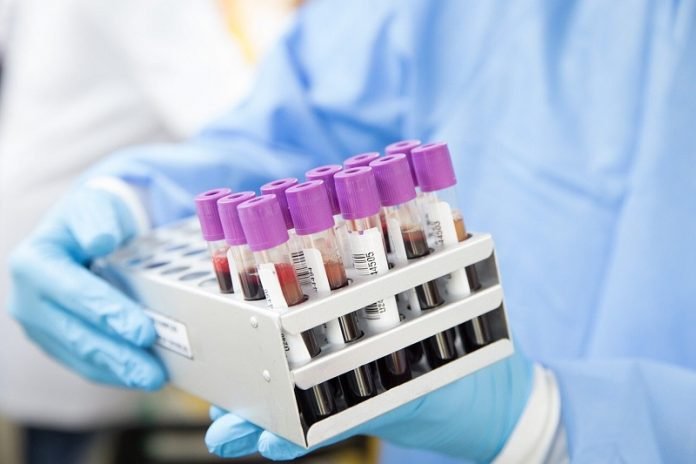
Scientists from Michigan Medicine found that blood tests taken on the day of a traumatic brain injury can predict which patients are likely to die or survive with severe disability.
This allows clinicians to make decisions earlier on the possible treatment of TBI.
This is the first study to examine the association between biomarker levels of these two proteins and all-cause death following TBI.
In the study, the team analyzed day-of-injury blood tests of nearly 1,700 patients with TBI.
They found that higher values of two protein biomarkers, GFAP and UCH-L1, are associated with death and severe injury.
The U.S. Food and Drug Administration cleared the use of GFAP and UCH-L1 in 2018 to help clinicians decide whether to order CT scans for mild traumatic brain injury.
The researchers measured the proteins using two devices from Abbott Laboratories, the i-STAT Alinity, and the ARCHITECT. Results were compared to evaluations made six months after injury.
They found that compared to those with GFAP values in the bottom 20th percentile, those with GFAP values in the top 20th percentile had a 23 times higher risk of death during the subsequent six months.
Similarly, compared to those with UCH-L1 values in the bottom 20th percentile, those with UCH-L1 values in the top 20th percentile had a 63 times higher risk of death during the subsequent 6 months.
The team says modern trauma care can result in good outcomes in what we had once believed were non-survivable injuries.
These blood tests are both diagnostic and prognostic, as well as easy to administer, safe and inexpensive.
While the method is promising for determining poor outcomes in moderate and severe TBI, researchers say more must be done to examine its role in mild cases.
If you care about brain health, please read studies about how to use a healthy lifestyle to prevent dementia, and medical cannabis could help reduce this brain disease.
For more information about brain health, please see recent studies that COVID-19 may strongly change your brain, and results showing these fruits could slow down brain aging and cognitive decline.
The research was published in The Lancet Neurology and conducted by Frederick Korley et al.
Copyright © 2022 Knowridge Science Report. All rights reserved.



